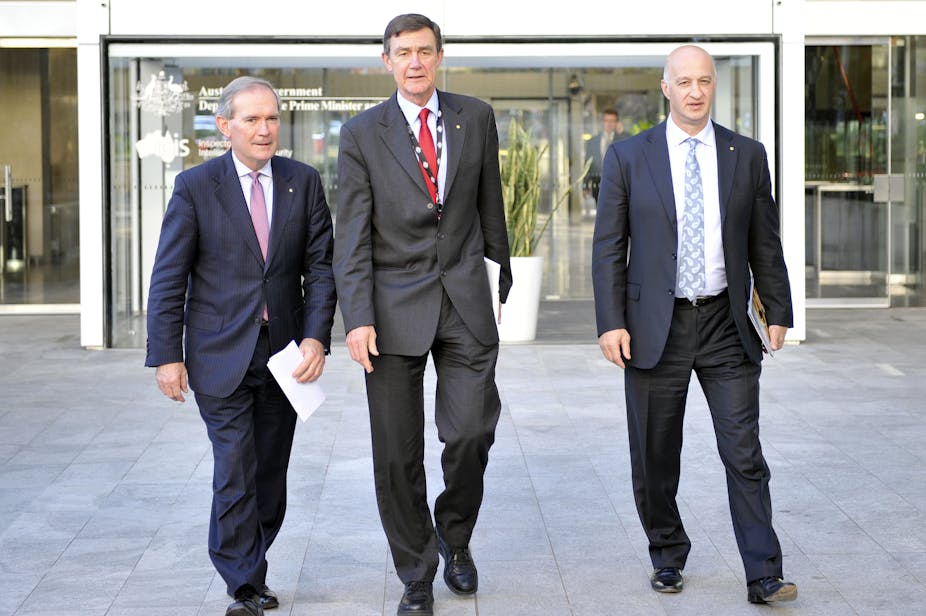Politics drives policy, and not the other way around. If we ever needed a sober reminder of this democratic truism, we got it in the political responses to the expert panel’s report on asylum seeker policy on Monday.
Tony Abbott immediately dismissed the bulk of report’s recommendations. The problem for the Opposition leader was that the panel did not wholesale share his pre-existing views, and was therefore obviously wrong. The Greens likewise brushed off the experts’ central recommendations without detailed consideration.
Julia Gillard – who commissioned the report six weeks ago – enthusiastically endorsed it. So much so that an amended migration bill for parliament has already been prepared in line with the expert panel’s 22 recommendations. Well might we might dismiss the response of the Coalition and the Greens as predictable, but the government’s response was too.
This is because the Houston Report is exactly what the government asked for - a hard-headed compromise on asylum seeker policy to break the current political deadlock and hopefully prevent more tragic loss of life at sea.
As Australia’s longest serving federal politician, Fred Daley, infamously said, governments should never commission enquiries if they don’t know what the recommendations will be.
So what does this all mean for the role of experts in policy making?
As (mostly) independent outsiders with smarts and specific training, experts provide valuable information and invaluable legitimacy to government action – or inaction - especially where their advice accords with pre-existing policy predilections.
It is impossible for any one person to intimately understand the complexity and implications of every possible policy in every domain, be it transport infrastructure or the health of the Tasmanian Devil population. Experts can help politicians avoid clanging policy failures and, where policies are controversial, provide critical endorsement when selling them to parliament or the public.
But experts can also undermine a government. If their advice is politically unfeasible (such as the Gonski review’s central recommendation of a $5 billion funding increase for schools shared between the states and the Commonwealth); has little electoral support (such as the dramatic actions urged by the vast majority of climate scientists); or simply runs counter to the government’s deeply held preferences (such as Howard’s rejection of multiculturalism as an official government policy). In these scenarios, experts are often swiftly sidelined as disconnected elites. No amount of empirical data from them can change the government’s mind.
It is not just experts and other “elite” outsiders that are dismissed. In the era of electoral-professional “catch-all” political parties, insiders such as party members have minimal and declining influence on policies, much to their chagrin. This is a core driver of the mass exodus of members from both major parties.
Policy makers must be meticulous in their selection of experts, which is where things get complicated. Experts are more likely to be brought in when they agree with a party’s stance.
It may seem counter-intuitive, but expertise is very often driven by values as much as it is by cold facts.
Highly intelligent people support and oppose federalism – to take but one example – for good reasons. And they’re driven in part by their philosophical values.
When presented identical information, clever, dispassionate experts can reach radically different conclusions. This fact is more readily accepted in some disciplines than others, hence the joke that by asking two economists you get three opinions.
Some of these values are ugly, touching upon raw political and even animal nerves.
The Howard government’s mantra “we will decide who comes to this country and the circumstances in which they come” may appear to be based on nothing else but obstinacy and gut instinct, and impervious to evidence. Yet, however erroneously, these policies are founded on principle, in this case sovereignty, and buffered by electoral support.
Politicians are the experts in politics. And their key performance indicator – as much as we might dislike it – is winning elections and maintaining power. Not what is right or compassionate – two noble values whose definitions themselves can vary according to the experts asked.

